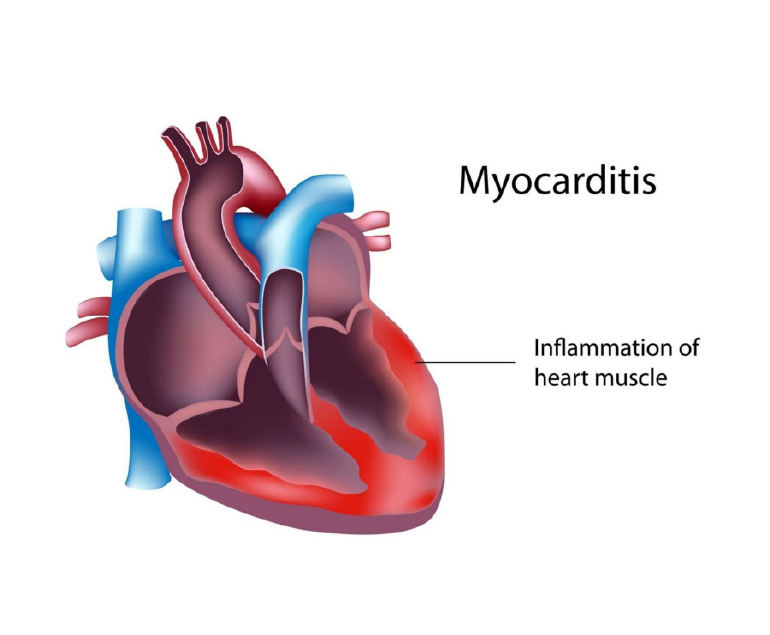Heart inflammation, medically known as myocarditis, is a condition characterized by the inflammation of the heart muscle, known as the myocardium. It can affect people of all ages, and if left untreated, it may lead to serious complications. In this edition of the Know Your Heart Series, we will look into the causes, symptoms, and treatment options for heart inflammation.
Causes of Heart Inflammation- 1. Infections:Myocarditis is often triggered by viral or bacterial infections. Common viruses include the enterovirus, adenovirus, and influenza virus. Bacterial infections, such as Lyme disease, can also contribute to the development of myocarditis.
- 2. Autoimmune Disorders: Certain autoimmune conditions, such as lupus, rheumatoid arthritis, or sarcoidosis, can cause the immune system to mistakenly attack the heart muscle, leading to inflammation.
- 3. Medications and Toxins:Certain medications and toxins, such as certain chemotherapy drugs, smoking & tobacco, or exposure to heavy metals, can cause inflammation of the heart muscle.
- 4. Allergic Reactions: In rare cases, an allergic reaction to certain medications or substances can trigger myocarditis.

The symptoms of heart inflammation can vary widely depending on the severity of the condition. Some common symptoms include:
- Chest pain or discomfort
- Fatigue and weakness
- Shortness of breath
- Rapid or irregular heartbeat
- Swelling in the legs, feet and ankles, increased weight
- Fever, body aches, and sore throat
It is important to note that some individuals with myocarditis may not experience any of these usual symptoms, making it crucial to pay attention to any unusual symptoms.
Diagnosis and Treatment- 1. Physical Examination and Medical History: 1.A medical practitioner will perform a physical examination and inquire about the patient’s medical history to assess the symptoms and potential risk factors.
- 2. Blood Tests: Blood tests can help identify markers of inflammation, such as elevated levels of certain enzymes or antibodies.
- 3. Imaging Tests: 3.Imaging techniques like echocardiography, magnetic resonance imaging (MRI), or computed tomography (CT) scans can provide detailed images of the heart, enabling doctors to assess its structure and function.
- 4. Electrocardiogram (ECG): 4.An ECG records the electrical activity of the heart, helping detect any abnormalities in heart rhythm.
- 5. Endomyocardial Biopsy: 5.In some cases, a small tissue sample is be taken from the heart muscle for further examination, especially when the cause of inflammation is unclear.
Treatment options for heart inflammation focus on addressing the underlying cause and managing the symptoms. These may include:
- 1. Medications:Anti-inflammatory drugs, such as nonsteroidal anti-inflammatory drugs (NSAIDs) or corticosteroids, are prescribed to reduce inflammation and relieve symptoms. In severe cases, immune-suppressing medications may be necessary.
- 2. Rest and Monitoring Examination and Medical History:2.Resting and avoiding strenuous physical activity can help the heart heal. Regular monitoring and follow-up appointments are crucial to assess progress and make any necessary adjustments to the treatment plan.
- 3. Treatment of Underlying Infections or Conditions:3.If an infection or autoimmune disorder is identified as the cause, appropriate treatment for the underlying condition will be initiated.
- 4. Supportive Care:4.In some cases, individuals with severe myocarditis may require hospitalization and supportive care, including intravenous fluids, medications to support heart function, or mechanical assistance devices.
Heart inflammation, or myocarditis, is a condition that requires prompt medical attention. Early diagnosis and appropriate treatment can help minimize complications and aid in the recovery process. If you experience any persistent or concerning symptoms related to your heart, it is essential to seek medical advice to ensure timely intervention and appropriate care.
